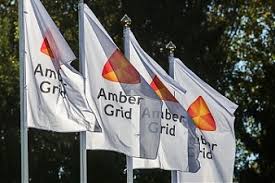Belarus, Competition, Construction, EU – Baltic States, Gas Market , Lithuania, Russia
International Internet Magazine. Baltic States news & analytics
Sunday, 07.12.2025, 05:24
Belarusians removed from Lithuania's GIPL tender due to ties with Russia - documents
 Print version
Print version |
|---|
A consortium of Kaunas-based KRS and Belarus' pipeline construction company Beltruboprovodstroy submitted the lowest price offer, at around 74.9 mln euros, for the contract but was removed from the bidding process due to national security concerns.
According to information available to LETA/BNS, the government ruled in early July that a deal with the consortium would not be in line with national security interests.
The Cabinet made the decision based on an opinion issued on June 20 by a special governmental commission vetting deals by strategic companies.
Links with Gazprom
Lithuania drawing up reply to Belarus' note
In late July, Belarus' Foreign Ministry handed a protest
note to Lithuania's chargé d'affaires in Minsk over what it described as
"interference in a commercial transaction". Neither side gave details
as to what deal was referred to.
Lithuania's Foreign Ministry has told LETA/BNS that it is
drawing up its reply to the neighboring country's note.
"We would like to underline that transactions with
foreign companies that are vetted under the law on the protection of
objects of importance to ensuring national security are subject to the
same requirements as transactions with Lithuanian companies,"
the ministry told.
Following the rejection of KRS' offer, the gas transmission
system operator Amber Grid named Lithuania's gas pipeline and
engineering network construction company Alvora, the runner-up bidder,
as the winner of the contract.
However, Poland's Rafako, which bid jointly with
Lithuania's MT Group, said it believed that Alvora might may pose a
threat to national security.
Spain's infrastructure, renewable energy and technology
group Elecnor, yet another bidder, is not happy with the results of
the bidding process either, because its final offer was rejected as not meeting
the requirements. In May, the Spanish group submitted a claim to Amber Grid,
but the latter did not satisfy it.
"In this case, all of Amber Grid's decisions and
actions point to the company's unwillingness to ensure fair competition; its
actions are very formal, clearly aimed at rejecting Elecnor's final bid,
which is unacceptable," Elecnor said in a document, a copy of
which is available to BNS.
Elecnor maintains that its final offer did not
differ substantially from the initial one which was recognized as
eligible. The Spanish company considered taking legal action, but decided not
to hinder the implementation of the project of national importance, the
company's representatives have confirmed to LETA/BNS.
Alvora, which bid jointly with Siauliu Dujotiekio
Statyba (Siauliai Gas Pipeline Construction), was named the winner after
being cleared by the special governmental commission in late July.
Government Vice-Chancellor Alminas Maciulis, who
heads of the commission, has told BNS that the Amber Grid was allowed to
sign the contract, worth 79.85 mln euros excluding VAT and 96.6 mln euros
including VAT, with Alvora, which operates in the Belarusian
market, but was issued "with very clear recommendations on
potential risk management measures".
Amber Grid's shareholders are yet to give the go-ahead on
August 28 before the deal can be signed. Construction work is expected to
begin in the fall.
Lithuania's HSC Baltic and Greece's J&P-Avax
also bid for the contract.
The Lithuanian part of the project calls for building a
165-kilometer gas transmission pipeline from the Jauniunai compressor station
in the district of Sirvintos to the Holowczyce gas compressor station in
Poland.
The GIPL project is estimated to cost 500 mln euros in
total, including up to 136 mln euros in Lithuania.








 «The Baltic Course» Is Sold and Stays in Business!
«The Baltic Course» Is Sold and Stays in Business!

